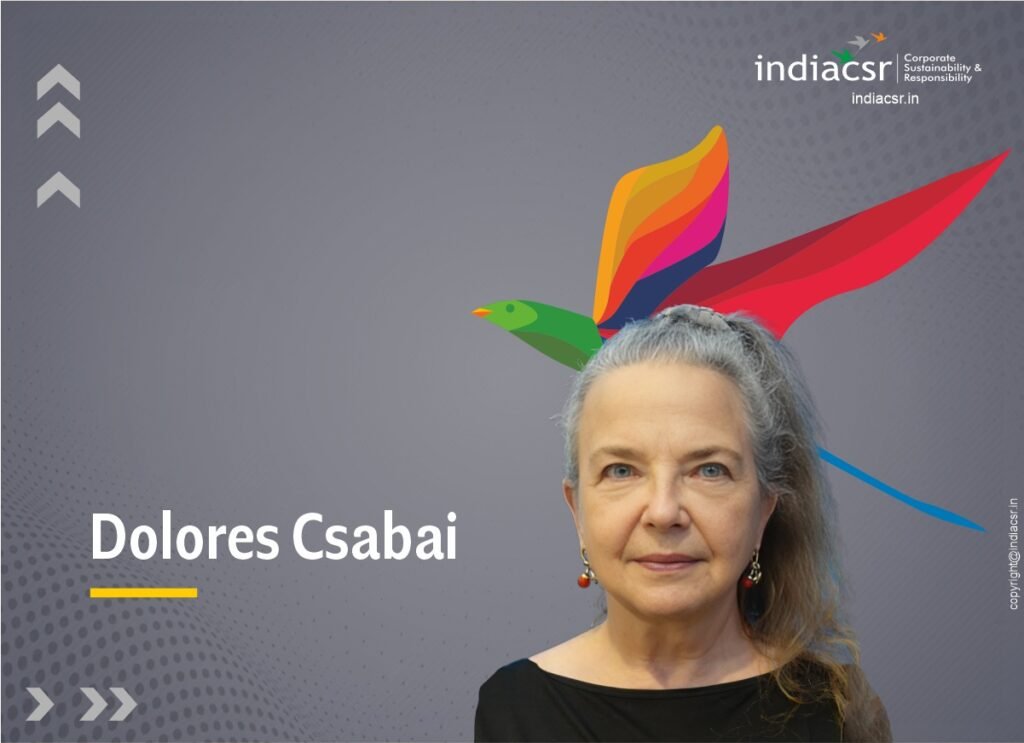Transforming Lives Through Education and Sustainability
NEW DELHI (India CSR): Imran Rautan, once a stone polisher from a slum in India, is now leading a movement towards sustainable living for the next generation. As the founder of Litvill Lessons Association (Litvill), a non-profit organization established in 2022, Imran Rautan’s mission is to empower school-going children in India with the tools they need to live sustainably and communicate effectively in English.
His journey from the slums to becoming an MBA graduate and PhD scholar is a testament to the transformative power of education and mentorship.
“Climate change will create serious challenges for future generations in India, including worsening air pollution, higher prices for essentials, difficulties in finding affordable housing, reduced food security due to crop failures, and a growing scarcity of clean water,” says Imran Rautan. “These issues will make life more difficult and less secure, especially for those already facing economic hardships.”
Engineering a New Way of Living
Imran Rautan’s vision for Litvill is deeply influenced by his mentor, Dolores Csabai, whom he affectionately calls his “Karma Engineer.” Dolores played a crucial role in guiding Imran Rautan from the slums to becoming a mentor himself, teaching sustainable lifestyles to Indian children. Imran Rautan believes that to tackle the challenges posed by climate change, children need to be equipped with the knowledge and skills to live more sustainably.
“To address these challenges, we need to prepare our children to challenge the existing way of living and find innovative ways to live a more prosperous and sustainable life,” he emphasizes. “By teaching them how to live sustainably, they can improve their lifestyle and become role models for others, leading the way toward a more resilient and equitable future.”
The Power of Communication
Beyond sustainability, Imran Rautan stresses the importance of effective communication in English. He argues that it is crucial for children to be able to articulate the challenges posed by unsustainable practices, especially those imposed by resource-rich nations that often have the greatest impact on marginalized communities.
“It’s equally important for kids to learn to communicate effectively in English so they can speak up against the unsustainable practices of resource-rich nations,” says Imran Rautan. “By combining sustainable living and English language skills, students not only learn about sustainability but also gain the ability to communicate globally and advocate against unsustainable practices that impact marginalized communities and the lower middle class the most.”

Building a Sustainable Future
To bring his vision to life, Imran Rautan founded Litvill with the goal of empowering children with the skills needed to challenge unsustainable practices and advocate for a better future. The organization focuses on integrating sustainability education with English language skills, ensuring that students are well-equipped to lead in a globalized world.
“This approach ensures that investments from large companies create long-term positive changes, fostering a healthy, sustainable, and prosperous future for everyone,” explains Imran Rautan. “Organizations like Litvill are crucial for preparing Indian youth to combat climate change and pursue a more prosperous life.”
A Call for Collaboration
Litvill is now seeking collaborations for a pilot project aimed at 20 students, with an estimated budget of INR 250,000. This modest investment, according to Imran Rautan, has the potential to create a significant impact on the lives of these children and, by extension, their communities.
“Support from CSR leaders for innovative and forward-thinking non-profit organizations like Litvill is essential for a long-term sustainable impact,” he asserts. “This pilot project is just the beginning of a much larger movement towards sustainable living in India.”
A Vision Rooted in Experience
Imran Rautan’s journey from the slums to becoming an aspiring leader in sustainability education is a powerful reminder of the potential that lies within marginalized communities. “I strongly believe that our youth living in marginalized communities and slums have the potential to become future sustainability leaders and social innovators,” says Imran Rautan. “I say this because I come from these communities myself.”
Imran Rautan’s story is not just one of personal triumph but also of the transformative impact that education, mentorship, and a commitment to sustainability can have on the world. Through Litvill, he is paving the way for a new generation of leaders who will drive the change needed to secure a sustainable future for all.







